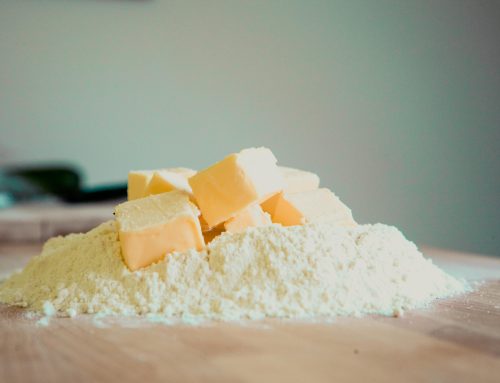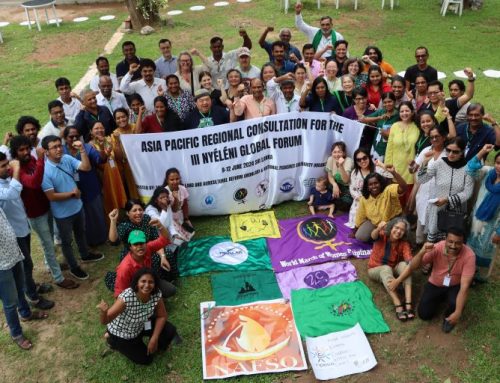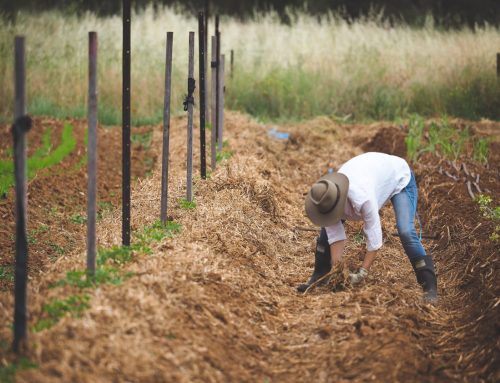We representatives of small-scale farmers, fishers, agricultural workers, indigenous peoples, women, youth, eaters, and NGOs came together from across Australia to meet on the traditional lands of the Ngunnawal, Ngambri, and Ngarigu peoples, paying our respect to elders past and present. At the 2018 Food Sovereignty Convergence we celebrated the opportunity to meet each other to continue weaving alliances, building solidarity, and strengthening our commitment to defend our right to democratically participate in food and agriculture systems.
We recognise the Original Owners and their role in caring for this land for over 60,000 years, their long history of growing food in ethical and ecologically-sound ways, and their careful maintenance of biodiversity before and since Invasion. We re-affirm our support for the Uluru Statement from the heart, which asserts that Aboriginal and Torres Strait Islander tribes were the first sovereign Nations of the Australian continent and its adjacent islands, and possessed it under their own laws and customs.
We affirmed our commitment to food sovereignty, which promotes everyone’s right to access culturally-appropriate and nutritious food grown and distributed in ethical and ecologically-sound ways, and our right to democratically determine our own food and agriculture systems.
The Australian Food Sovereignty Alliance (AFSA) today celebrates an historical achievement as we unanimously voted to amend our constitution to make AFSA explicitly farmer led. While in practice we have for some years been an alliance of farmers and allies with a clear focus on radically transforming the food system from the ground up, the new constitution gives farmers control of decisions that have a material impact on their efforts to grow food ethically and ecologically. If you’re not a farmer, you must be an ally, and if you’re not an ally you have to ask yourself why not? AFSA’s farmers are not interested in the old silo mentality – we work in solidarity with the full range of other actors in the system for the radical transformation so desperately needed.
Agroecology is recognized by the UN as the best way to feed the world. In Australia, regenerative farming is on the rise, and AFSA hopes to support an evolving conversation that acknowledges agroecology’s potential to extend the movement’s progress on ecological improvements to farming to also include social and economic improvements embedded in the principles and practices of agroecology.
Small-scale farmers are struggling to maintain access to critical supply chain infrastructure that is owned by a shrinking number of corporations. AFSA is committed to supporting communities to take control of the means of production, and are helping farmers and allies to network and develop cooperative models to build supply chain infrastructure such as abattoirs, grain mills, and other collaborative processing and storage facilities. We see this work as essential to the project of building a new food system that will ultimately make the old one obsolete.
AFSA champions the work of leaders such as farmer and agrarian intellectual Charles Massy (author of Call of the Reed Warbler), who is supporting an underground insurgency of broadacre farmers transitioning to more regenerative and agroecological models of farming. We applaud the many farmers across the country who are developing practices that are creating resilient systems so needed in the face of the negative impacts of climate change. We extend a message of care and concern for the farmers suffering from the devastating impact of the current drought who are trapped in the industrial system, and hope they receive more than just bales of hay that don’t address the core issues with industrial production methods that have left them so vulnerable.
Solidarity is critical to any movement, and AFSA re-affirms our commitment to working productively with the many excellent organisations acting for food sovereignty in Australia and globally, such as but not limited to Open Food Network, the Right to Food Coalition, the Victorian Farmers’ Market Association, Melbourne Farmers Markets, Regrarians, Sustainable Table, Friends of the Earth, Food Connect, Gene Ethics, ActionAid, ORICoop, the many Slow Food convivia around the country, and internationally the International Planning Committee for Food Sovereignty (IPC), La Via Campesina, and Urgenci: the International Network for Community-Supported Agriculture.
We recognize the important role played by local councils in supporting their farmers, makers, and distributors of food, and commit to developing ‘ideal council guidelines’ to assist them with a food sovereignty framework to help guide their decision making around matters spanning from verge gardening to capturing rainwater for drinking to having animals on smallholdings and safely converting home kitchens to commercial kitchens for cottage industry.
On World Food Day we celebrated the recent UN Human Rights Council’s ratification of the Declaration on the Rights of Peasants and Other People Working in Rural Areas. We bear witness to the Australian Government’s retrograde vote against the Declaration, an egregious undermining of the rights of the world’s most oppressed peoples who do the world’s most critical work to grow more than 70% of our food globally. The Declaration defines peasants as:
a man or woman of the land, who has a direct and special relationship with the land and nature through the production of food and/or other agricultural products. Peasants work the land themselves, rely above all on family labour and other small-scale forms of organizing labour. Peasants are traditionally embedded in their local communities and they take care of local landscapes and of agro-ecological systems. The term peasant can apply to any person engaged in agriculture, cattle-raising, pastoralism, handicrafts related to agriculture or a related occupation in a rural area. This includes Indigenous people working on the land.
The farmer members of AFSA identify with the definition of peasants as we work the land, caring for our agroecological systems embedded in our rural communities. We look forward to strengthening social relationships and opportunities for farmer-to-farmer knowledge sharing with regular gatherings of ‘Peasants at the Pub’ across the country.
The movement is diverse, and we recognize the particular struggles some of our members experience because of discrimination or lack of recognition. We affirm our support for Indigenous Peoples, rural women and youth, and queer and gender diverse people, many of whom are leaders in the new farming movement.
The forces we’re struggling against may have the money, but we have the people. We’re looking for more food sovereignty warriors to help do the work before us – volunteers are essential to our ultimate success in radically transforming the food system. Whether you are good at writing letters and petitions, providing website support or graphic design skills, have legal experience or could help prune fruit trees to free up our committee members to take their activism off their farms and into the halls of power, the food sovereignty movement needs more people to get active in creating the future we wish to see.
We acknowledge the ecological devastation caused by industrial agriculture since European invasion, and commit to ongoing conversations with communities of Indigenous Peoples as we work towards deeper understanding and genuine relationships with the Original Owners. We are conscious of the risk of hollow acknowledgements of country, and commit to supporting our members to seek stronger ties to Indigenous communities and work towards a day where everything we do is in connection and mutual accountability with community.
All this and more we commit to in our struggle for food sovereignty locally and globally. We have again democratically elected a committee of farmers, food workers, educators, and academics to lead the important work ahead of us.
Viva la revolución! Viva la via campesina!




